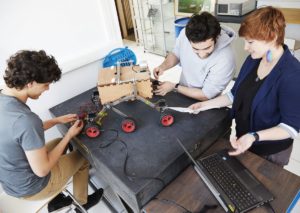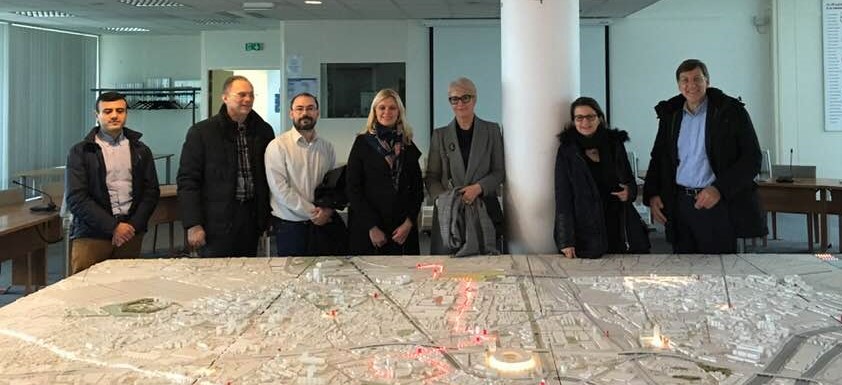The EBCC Model project (Educational Business and Companies Cooperation Model for a Creative European Engineering Education) is a project funded by ERASMUS+. Its main purpose is to strengthen the involvement of higher education institutions in the development of business innovation by engaging with local enterprises.
 Traditional engineering programs are focused on engineering science and may not provide enough design experience for students. Higher education institutions could therefore engage in closer cooperation with industry to overcome these weaknesses.
Traditional engineering programs are focused on engineering science and may not provide enough design experience for students. Higher education institutions could therefore engage in closer cooperation with industry to overcome these weaknesses.
The interest is therefore to encourage students to acquire more practical skills in the design and development of innovative products as well as key concepts of rapid prototyping.
Cooperation between industrial partners and higher education is beneficial for both parties, especially for SMEs that may use fewer resources to solve non-urgent problems and develop new products. Cooperation is often limited only to an industry-led project or a real case. Local government participation will move from a case-by-case approach in selecting industrial partners to more structured and long-term cooperation between higher education institutions and industry partners with community support .
The main outcome of the project will be the creation of a sustainable partnership model between higher education institutions, local communities and industry.
Such a partnership model will contribute to teaching activities for engineering students who combine theory and practice in a context of real engineering applications.
Projects led by industry and/or the community will go through all stages of the partnership model developed from the adaptation of the study methods to the presentation of the prototypes of products created and the evaluation of the results of the projects. studies. Students will experience the different stages of product development: design, design, simulation, analysis, manufacturing and testing, using rapid prototyping methods and tools.
 The project has started in October 2017 and will last two years. It is divided into four main intellectual productions:
The project has started in October 2017 and will last two years. It is divided into four main intellectual productions:
- O1: Analysis of engineering skills for innovative product design based on regional needs
- O2: The guidelines for implementation of skills in engineering design and development of innovative products in the engineering curriculum
- O3: Guidelines and examples for using rapid prototyping to acquire practical skills in product design engineering
- O4: Sustainable partnership model among universities, communities and industry in the region
The EBCC Model project summary:
- Funding: Erasmus +
- Key action: Partnerships are projects of international cooperation between several organizations to exchange experiences and practices or to develop innovative educational productions with high added value.
- Program: Strategic Partnership for Higher Education
- Coordinator: Riga Technical University
- Partner: Supmeca; Plaine Commune; SEFI (European Society for Engineering Education); Aristotle University of Thessaloniki
- Budget: 264 259.00 € including 72 510 € for Supméca and 34 610 € for Plaine Commune
- Duration: 24 months from 01 October 2017.